Welcome to your road trip to Bulgaria as we delve into crucial knowledge about your rental car in Bulgaria, exploring this captivating EU state.
As someone who has personally navigated through different cities in Bulgaria, one with my kids in the car for seven days, I understand the unique joys and challenges of exploring this remarkable country with a Bulgaria car rental.
Book your rental car, and it opens up the landscapes of Bulgaria, such as sunny beach or Sozopol allowing you to explore places of interest at your own pace. In this guide to Bulgaria car hire, I’ll provide you with the types of information you need to navigate the roads with confidence.
From deciphering speed limits to understanding additional fees, this guide has it all. Your driver’s license is your ticket to freedom, and with public transport often limited, having your wheels is the main advantage.
I will steer you towards the best car rental deals in Bulgaria, ensuring your road trip adventure is both cost-effective and enjoyable. So, fasten your seatbelt and get ready to hit the road as we embark on a journey through the diverse and beautiful landscapes of Bulgaria, one kilometer at a time.
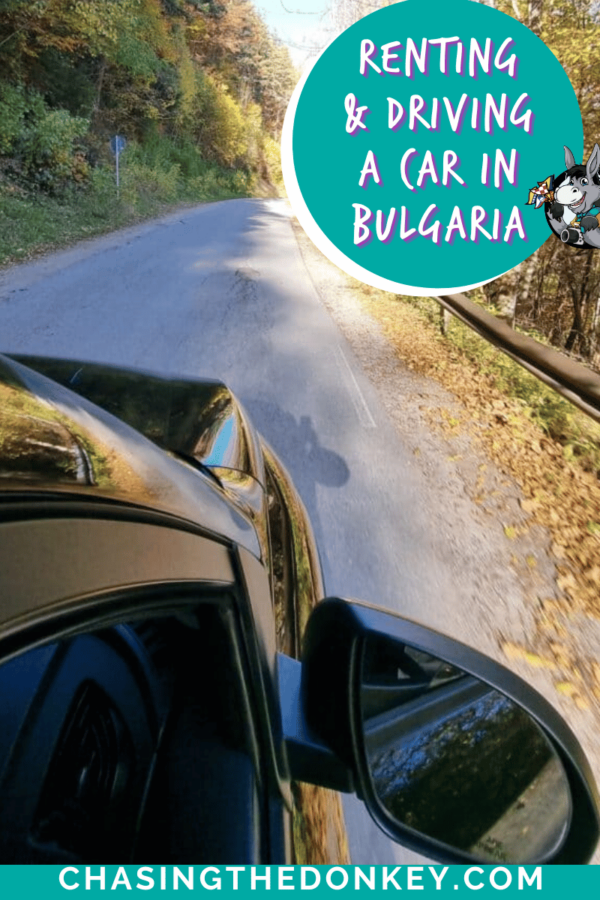
From navigating the mountainous landscapes to getting the hang of local driving customs, this blog is your ultimate guide to everything you need, from car rental locations in Bulgaria to embarking on a thrilling drive.
So buckle up as we take you on a ride filled with breathtaking vistas, cultural discoveries, and invaluable tips for a truly remarkable Bulgarian road trip!
Skip Ahead To My Advice Here!
Do You Need An International Driving Permit
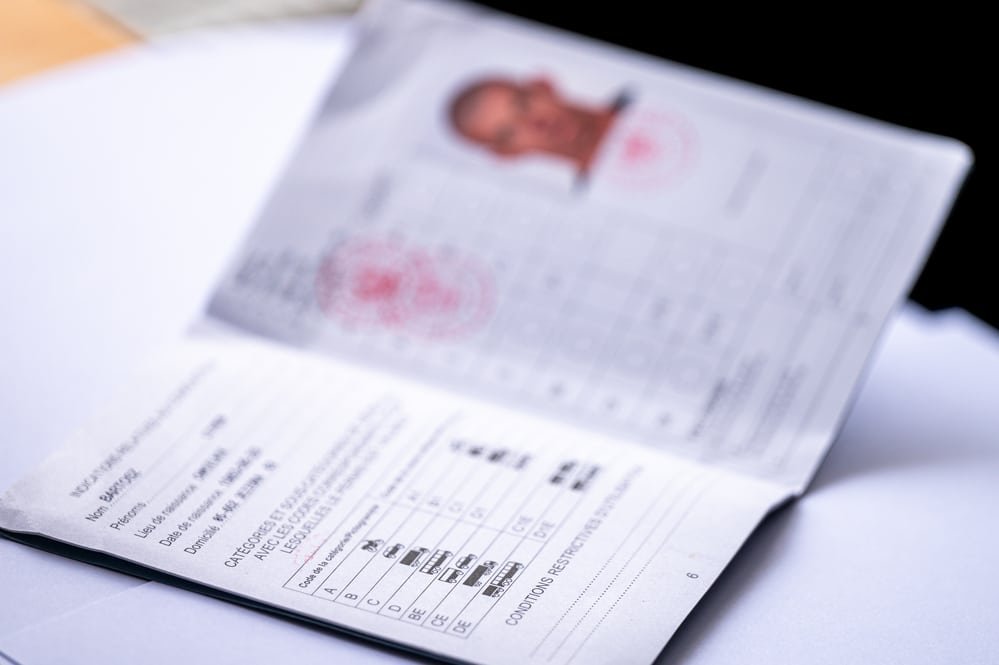
An International Driver’s Permit (IDP) lets you drive your rental car in Bulgaria as a tourist for an extended stay of up to 90 days. You must be at least 18 years old and have a valid driver’s license from your home country.
To obtain an international driver’s permit, you can apply in person at a local office of the Automobile Association or the Ministry of Transport or online, which is even better as you save time lining up.
The IDP is valid for one year and must be accompanied by your regular driver’s license when you are driving.
Regulations And Laws Of Driving In Bulgaria
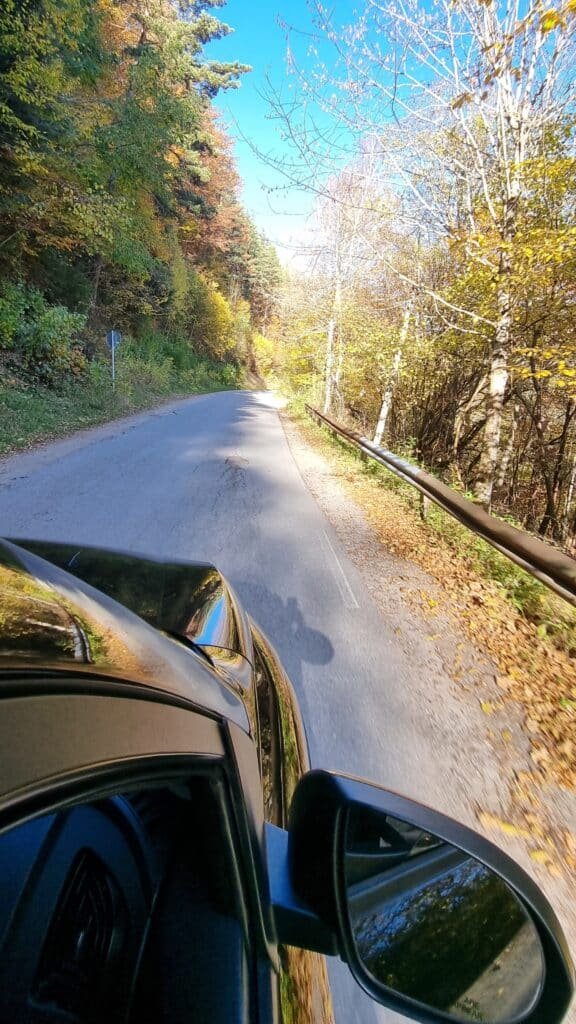
The legal blood alcohol limit in Bulgaria is 0.05%. If you are caught driving with a blood alcohol concentration (BAC) of 0.05% or higher, you will be subject to a fine and/or imprisonment.
It is also illegal to drive under the influence of drugs in Bulgaria. If you are caught driving while impaired by drugs, you will be subject to a fine and/or imprisonment.
All drivers must carry a valid driver’s license, registration, and insurance while driving in Bulgaria. If you are caught driving without these documents, you will be fined.
Seatbelts are required for all drivers and passengers in Bulgaria. If you are caught not wearing a seatbelt, you will be fined.
Child safety seats are required for children under the age of 12 or weighing less than 36 kg (79 lbs). If you are caught driving with a child who is not adequately secured in a child safety seat, you will be subject to a fine.
You may not drive and talk on a mobile phone at the same time unless you are using a hands-free system.
What To Look For In Rental Deals In Bulgaria
When searching for great deals in Bulgaria, you have options ranging from small car rental to medium-sized vehicles offered by major rental brands like Avis, Hertz, and Europcar.
Sofia is a prime location for rental services, and you can also explore long-term rental options and book a luxury car. For a more local experience, consider country rentals from smaller Bulgarian-owned companies. The best way to find a deal is to compare rates and reviews to find the ideal deal for your travel needs – we like Discovery Cars the best as they have more low-cost cars.
Larger International Car Rental Companies:
- Avis
- Hertz
- Europcar
- Budget
- Sixt
- Enterprise
- Thrifty
- Firefly Car Rental
Smaller Locally-Owned Car Rental Companies:
- Firefly Rent A Car
- Moto Rent A Car
- Top Rent A Car
- Inter Rent A Car
Brands We Use And Trust
What To Expect On The Road In Bulgaria
We loved our 5-day road trip in Bulgaria last year, and the roads were not as bad as many said online. That said, if you’re planning on driving in Bulgaria, you should know a few things before hitting the road.
- Highways (Motorways): Bulgaria has a network of modern highways (known as motorways)connecting major cities and regions. The most significant one is the A1 highway, also called the Trakiya Motorway, which connects Sofia (the capital) with Plovdiv and Burgas on the Black Sea coast. The A2 highway, or Hemus Motorway, links Sofia with Varna on the northeastern Black Sea coast. These highways generally have Good quality roads and are well-maintained
- Main Roads: major national roads connecting cities and towns are generally in decent condition. These roads are typically paved and well-marked. However, some secondary roads and rural routes might have potholes or rough surfaces, so it’s advisable to exercise caution, especially in less populated areas
- Urban Roads: roads within cities are usually well-paved and maintained. However, traffic congestion can be an issue, particularly during peak hours in larger cities like Sofia and Plovdiv.
- Rural Roads: Some rural roads might be narrower and less well-maintained than main roads, particularly in remote areas. Be prepared for potential bumps, gravel sections, or uneven surfaces when driving in rural regions
- Road Signs and Markings: road signs in Bulgaria are typically in the Cyrillic alphabet, so if you are unfamiliar with the alphabet, it’s a good idea to learn some common road-related terms before driving. Major roads also often have signs in Latin letters to assist foreign drivers
- Driving Habits: drivers in Bulgaria can have varying habits, and adherence to traffic rules might not always be consistent. Defensive driving is recommended, and it’s essential to be cautious at intersections and when changing lanes
- Winter Conditions: in winter, especially in mountainous regions, roads can become icy and slippery. Snow chains or winter tires might be required in certain areas during the winter months
- Toll Roads: some highways in Bulgaria require toll payments. You can pay the tolls at dedicated toll booths
Emergency Contacts In Bulgaria
- Bulgarian National Police website www.mvr.bg
- Police emergency contact number 112
Speed Conversion: Miles per Hour to Kilometers per Hour
Speed limits are typically posted in kilometers per Hour, so make sure you know how to convert (or copy the table below) miles per Hour to kilometers (km/h).
Unless explicitly specified otherwise, the speed limits are defined as:
- 50 km/h within the population areas
- 90 km/h outside populated areas
- 130 km/h on motorways
| Miles per Hour (mph) | Kilometers per Hour (km/h) |
|---|---|
| 5 | 8.05 |
| 15 | 24.14 |
| 25 | 40.23 |
| 35 | 56.33 |
| 45 | 72.42 |
| 55 | 88.51 |
| 65 | 104.61 |
| 75 | 120.70 |
| 80 | 128.75 |
Popular Road Trip Routes
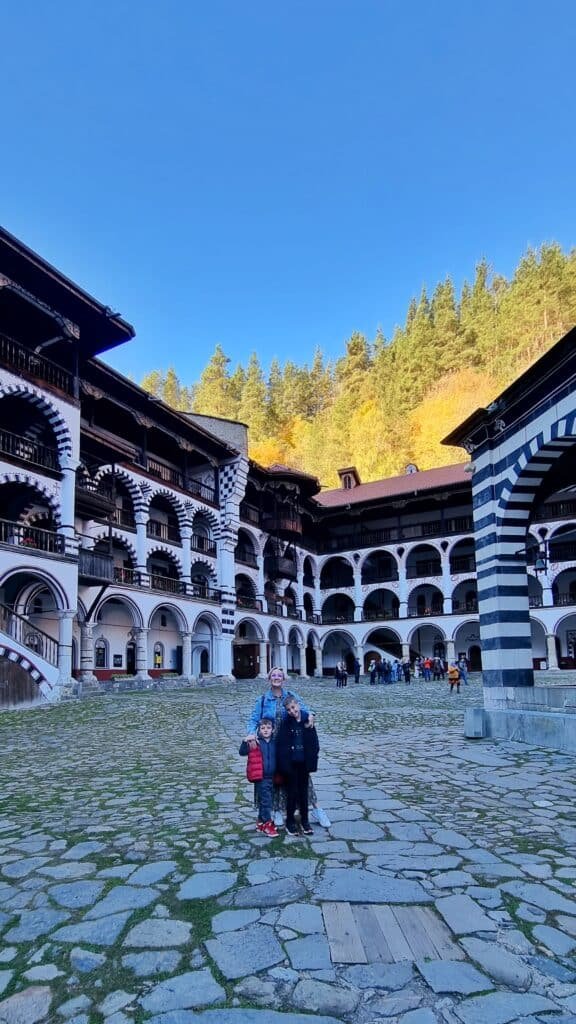
If you’re planning a road trip in Bulgaria, there are a few popular routes that are definitely worth checking out. The first is the Black Sea Coast, which offers stunning coastal views and plenty of opportunities for stops along the way. This route takes you from Varna all the way down to Burgas, so it’s perfect if you’re looking for a longer trip.
Another great option is the Rhodope Mountains, which offer incredible scenery and plenty of hiking and outdoor activities. This route takes you from Plovdiv to Smolyan, so it’s perfect for exploring more of the country.
If you’re looking for a shorter trip, the Valley of the Roses is definitely worth checking out. This route takes you from Kazanluk to Shipka, which is famous for its beautiful roses. You’ll also get to see some incredible historical sites along the way.
Bulgaria has plenty to offer whichever route you choose, and driving is a great way to see it all.
Useful Phrases When Driving In Bulgaria
| English | Bulgarian |
|---|---|
| Call the Police! | Извикайте полицията! |
| Do you speak English? | Говорите ли английски? |
| My car has broken down. | Колата ми се развали. |
| Where is the nearest fuel station? | Къде е най-близката бензиностанция? |
| I am lost! | Изгубих се! |
| Thank you! | Благодаря! |
Renting a Car in Bulgaria
If you’re planning on renting a car during your stay in Bulgaria, there are a few things you should know before you go.
- all drivers must have a valid driver’s license and be at least 18 years of age
- You’ll also need to present your rental agreement and proof of insurance at all times while driving
- When it comes to navigating the roads, keep in mind that Bulgaria drives on the right side
- Speed limits are generally lower than in some European countries, so be sure to obey posted signs
- Be aware that some tolls may apply to your route
Do I need an international driver’s license in Bulgaria?
EU drivers: If you possess a driving license issued within the European Union, you do not need an international driving permit to drive in Bulgaria.
Non-EU drivers: If your driving license originates from a non-EU country, you must acquire an international permit alongside your national license to ensure compliance with Bulgaria’s driving regulations.
Where can I rent a car in Bulgaria?
There are dozens of car rental companies operating in Bulgaria. Some well-known car rental companies that have car rental locations at the airport include:
- Sixt Rent a Car
- Hertz
- Avis
- Budget
- Enterprise Rent-A-Car
- Europcar
- Thrifty
- Top Rent A Car
- Moto-Pfohe Rent-A-Car
Before renting a car, make sure to compare prices, services, and terms from different companies to find the best option that suits your needs and budget. Additionally, consider reading reviews from other customers to get an idea of their experiences with each company. To do that, we like Discovery Cars and RentalCars.com
Is it expensive is it to rent a car in Bulgaria?
The cost of renting a car in Bulgaria can vary depending on several factors, including the type of car, rental duration, location, and the rental company. Generally, car rental prices in Bulgaria are relatively affordable compared to other European countries like Croatia, where we found car rental prices eye-watering. Cheap car rental options are the lowest in winter and when you book early. As soon as you know your travel date, look at at least one car aggregator to get an idea of the costs.
How much will it cost to rent a car in Bulgaria?
You could find economy cars with low prices. The cheapest I found was around 25 to 50 euros per day. Mid-size and full-size cars range from an average price of 40 to 80 euros per day. Luxury or premium cars are more expensive, with prices going above 100 euros per day. The best prices will be found by booking early.
It’s important to consider additional costs, such as insurance, fuel, and any optional extras you might want, like a GPS or child seat. Some car rental companies also require a security deposit, which will be refunded upon returning the vehicle in good condition.
Can I rent a car in Bulgaria with a US driver’s license?
Yes, you can rent a car in Bulgaria with a US driver’s license so long as you have your international driver’s license with you.
Are the roads and highways in Bulgaria as bad as people say?
No. Although Bulgaria’s road infrastructure has improved over the years, there can still be variations in road conditions throughout the country.
How old do you need to be to rent a car in Bulgaria?
The minimum age requirement to rent a car in Bulgaria is typically 21 years old. Most car rental companies in Bulgaria set this age restriction for renters. However, some rental agencies might require the driver to be at least 23 or 25 years old, depending on the specific company and the type of car being rented.
If you are under 25, you more than likely will have to pay a young driver surcharge.
Can I rent a car in Bulgaria and drive to Serbia, Greece, or within the EU?
Yes, you can rent a car in Bulgaria and drive to Greece, Romania, or such. Taking a rental car across the border between the two countries (such as to Macedonia or Romania) is generally permissible so long as you let the rental car company know so that they can prepare the correct paperwork.
Does Bulgaria have toll roads?
Yes, some Bulgarian roads, particularly the highways (motorways), have tolls. The toll system in Bulgaria applies to specific motorways to help fund the construction, maintenance, and improvement of the road infrastructure.
The most notable toll road in Bulgaria is the Trakiya Motorway (A1), which connects Sofia (the capital) with Plovdiv and Burgas on the Black Sea coast. Additionally, certain sections of the Hemus Motorway (A2) and the Struma Motorway (A3) are tolled.
What major airport locations in Bulgaria have car hire services?
These airport locations all have a car rental service:
Sofia Airport (SOF) – Located in the capital city, Sofia
Varna Airport (VAR) – Serving the coastal city of Varna
Burgas Airport (BOJ) – Located in Burgas, a popular seaside destination
Plovdiv Airport (PDV) – Serving the city of Plovdiv and the surrounding region
Gorna Oryahovitsa Airport (GOZ) – Located near Veliko Tarnovo in central Bulgaria
Move This Adventure To Your Inbox & Get An Instant Freebie

No spam. Unsubscribe at any time.
Wrap-Up On Driving In Bulgaria
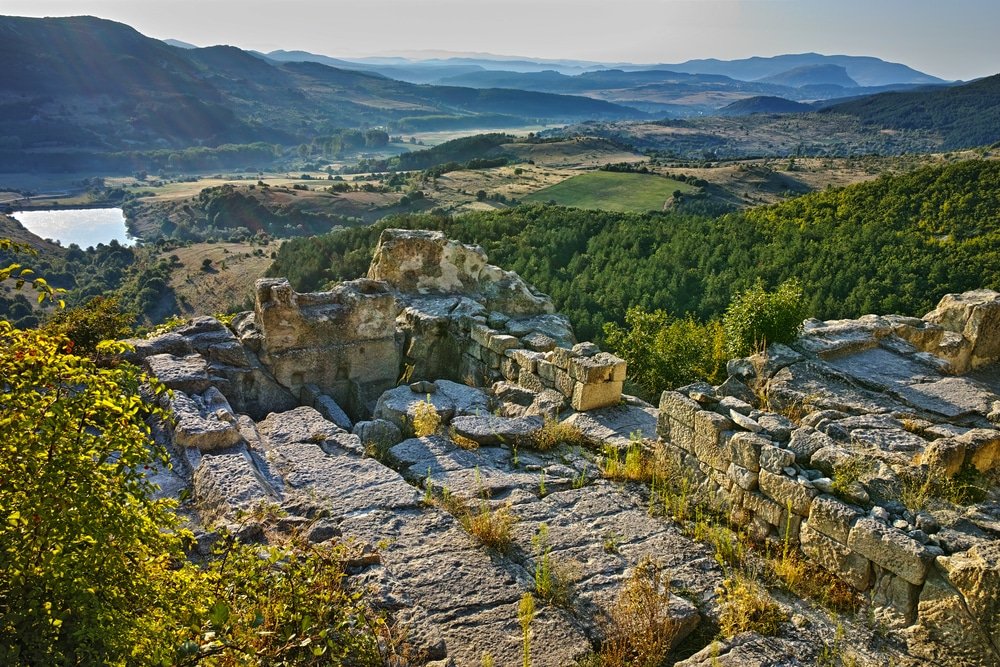
Driving in Bulgaria can be an enjoyable experience if you do your research and prepare adequately. The country’s roads are generally safe, but traffic laws should be observed to minimize any risks.
Check the road conditions before you plan to visit a new city and ensure you have all of the necessary documents when crossing borders. With these tips in mind, your trip around Bulgaria will be smooth sailing!

